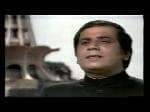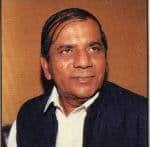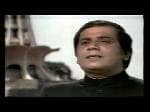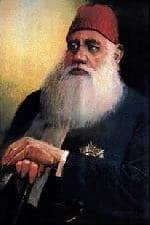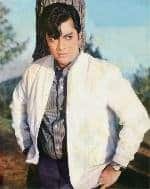Masood Rana – Pakistani Film Singers
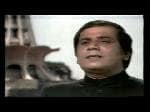
Masood Rana was a film singer from Pakistan. He began his career singing in 1962 with the film and became Inqalab male singer in both Urdu and Punjabi films for more than three decades. Sang in the largest number of films, and was busy film singer until his death on October 4, 1995.
Rana was born in Port Masoud Mir-Khas, Sindh to the family of landowners that had migrated from East Punjab city Jalandhar. He started his career singing for Radio Pakistan Hydrabad in 1955, and established a singer group in Karachi in the 60 early with other famous names in the entertainment industry – Nadeem Ahmed and ethics. Masood Rana got breakthrough for the first time when the famous actor Saqi introduced him to Shehzad Iqbal producer and director and musician Deebo. It was his first film song in the film and Inqalab the song and was so bright tareek panic Maine Nia svera phoota straw … Music by music director NK Rahoor but he got fame from Banjaran second film in 1962. And presented proudly as “Pakistani Rafi” and always lived up to his reputation. He was a specialist in singing difficult at a very high pitch, and was the first choice for the title and theme songs.
In 1964, and the Punjabi song Tange loyalty mangda good … Daachi film song in the street. He then became the most dominant male singer in both Urdu and Punjabi films when has 6 songs in the film Hamarahi (1966) The effectiveness huge. Masood Rana is still only male singer in Pakistani films who sang more than 300 songs in each of the two languages - Urdu and Punjabi. Sang in more than 550 films, he worked continuously from his first film in 1962 until his death in 1995
With his charismatic voice and God-gifted talents, he rapidly climbed the rungs of the ladder and within no time, he was competing with the remarkable singers of his period.
The eventful story of his dramatic rise in the world of music started with his debut song: ‘Mashriq ki hai tareef’ (film: ‘Inqilaab’: 1962, music: Natho khan), which was followed by another super hit, romantic song: ‘Kaheen dil pay na jadoo’ (film: ‘Banjaran’: 1962, lyrics: Masroor Anwar, music: Deebo, picturised on Kamal).
Then came one of the most popular, evergreen song: ‘Aye dil tujhay ab unsay ye kaisi shikayat hai’ (film: ‘shararat’: 1963, lyrics: Masroor Anwar, music: Deebo, picturised on Mohammad Ali).
It was followed by ‘Mukhray pay Aanchal’ (film: ‘Dil nay tujhay maan liya’: 1963, singer: Masood Rana- Naheed Niazi, music: Muslehuddin).
Next in line was Masood’s all time favorite Punjabi song: ‘Tangay wala khair mangda’ (film: Daachi: 1964, lyrics: Hazeen Qadri, music: G.A.Chishti, picturised on Lala Sudhir).
Masood did justice to all poets in general, and to josh Malihabadi, in particular.
National songs written by Josh Malihabadi and recorded in Masood’s voice are an asset for the Pakistanis:’ Dil ko jab bay kali nahi hoti, zindigi, zindigi nahi hoti’ (poet: Josh Malihabadi)
‘Aye watan hum hain teri shama kay perwano main’ (film: ‘Aag ka darya:1966, poet: Josh Malihabadi, music: Ghulam Nabi, Abdul Lateef)
Innumerable lamps must have been lightened with these words: ‘Kitnay roshan hain diye, teray shabistano mein’
Likewise, the backbone of Pakistan: The farmer and the hard working labor were so proud to hear these lyrics from Masood’s lips: ‘Teray mazdoor ki Aankhon kay shararay lay kar, teray dehqan kay mathay kay sitaray lay kar, chandni boain gey jhultay huay maidano mein’ His fans will always remember his familiar face when he used to appear in national dress (dressed in sherwani) in Pakistan television’s music program.
Maestro Masood had that extremely rare ability to prolong a lyric and then, bringing the last word of that lyric to an abrupt halt, the last word of the lyric was uttered in less then a second.
This was the prerogative of Masood alone. Hence, it has not been observed in any other play-back singer of the Indo-pak subcontinent.
A quick example is ‘Aye watan hum hain teri shama kay perwano mein’ (note how he stretches the phrase : ‘kitnay roshan hain diye, teray shabistano’ and then, stops all of a sudden at the last word of the phrase, ‘mein’.
In the sixties, he became the heart-throb of millions of his country-men with ‘tumhe ho mehboob meray, mein kyon na tumhay pyar karoon’ (film: ‘Aa’ena: 1966, lyrics: khwaja pervez, music: Tasadduq)
Film: ‘Hamrahi’ was a milestone in Masood’s singing career. All songs of ‘Hamrahi’ are relegated as the ‘Best of Masood Rana’.
Moreover, thousands of movie-goers watched ‘Hamrahi’ just because of the all-time great songs of Masood.
‘Hamrahi’s seven songs are listed here below:
‘Kiya kahoon aye duniya walo, kiya hoon mein’ (film: ‘Hamrahi’: 1966, lyrics: Muzaffar Warsi, music: Tasadduq)
‘Karam ki ik nazar hum per…ya Rasool Allah’
‘Ho gaye zindigi mujhay pyari’.
‘Naqsha teri judaye ka ab tak nazar mein hai’.
Mujhay chore kar akela, kaheen dooor janay walay’.
‘Qadam, qadam pay naye dukh’.
‘yaad karta hai zamana unhi insano ko’
‘Pukara hai madad ko, bay kaso nay, haath khali hai…bacha lo doob nay say ye…ya Rasool Allah’ will never be forgotten by 130 million Pakistanis.
The indescribable pathos, injected by the depth and versatility of the voice of this master singer is simply out of this world.
Mentioned here below is a song from the endless list of super hits, which is a recipe for sadness:
‘Ajeeb hai ye zindigi, kabhi hai gham, kabhi khushi’ (film: ‘shola aur shabnam’: 1967, music: M Ashraf))
Apparently, it fills ones heart with hope and desire, as he listens to ‘khushi say gham sahain gay hum, kay gham kay baad hai khushi’
Romantic scores like ‘Jhoom aye dil ho, mera jaan-e-bahar Aaye ga’ (film:’Dil mera, dharkan tere’: 1968, music:Enayat Husain, picturised on Waheed Murad) took Masood’s name from one corner of Pakistan to another.
In the vast array of sad songs, which enthralled million, two are listed here below:
‘Koi saath dey, key na saath dey’ (film: Budnaam, music: Deebo).
‘Phir subah hogi, Aandheray nahi ruknay walay’ (film: ‘Phir subah hogi’, music: Naashad, lyrics: Masroor Anwar)
Masood’s distinctive gift to accommodate the co-singer (in a duet) to transform otherwise not so glamorous composition into all time great mega
hit is one reason, among many, of his great name and fame.
Given below is a masterpiece, which is an exquisite blend of torment and anguish:
‘Tujhay pyar ki qasam hai, mera pyar bun kay Aaja’ (film: ‘chand aur chandni’: 1968, Masood Rana-Mala, music: Karim Shahabuddin)
Caught one of the best examples of hopelessness and despair, clearly by Massoud is the “Yad Terry aa Jaya, Khushi Ghamdi Maine dhal Guy” (Film: “Chand Aur Chandni ‘: 1968, music: Karim Shahabuddin, photographer for Nadeem)
Those eyes filled with tears as he listened to “Two is the Gai Tom Judah, bhatak Aur Hum Hain rahay ‘and also’ Aisee bijliyaan gereen, Galatasaray khwab toured Guy”
Massoud became the darling of the youth with songs like: “Fasana-E-SA Summary Dil Hai, Maine Dil Kay AAG bharak uthi Hai” (film: “Tumhi is beloved meray ‘: 1969, and music: M.Ashraf)
“Hal-E-Dil Aaj hum Dear Sona yain gay ‘(film:” Chiragh Kahan, Roshni Kahan “: 1971, music: M.Ashraf)
Won in the hearts of the young generation with the ‘Pena Teray beteen gharyaan Lyon, jaisay sudyaan beeth gayeen’ (film: “Aansoo: 1971, The Music: Nazir Ali Lyrics: Khawaja Pervez)
When it came to express their emotions and feelings are rare, one can not do this then the best Massoud.
Fine an instance of this fact, live virtual ‘Meray Dil Hai Ki Aawaz, Kay bichhra Yar melay GA’ (film: “Baharo bean barsao ‘: 1972, Words: shevan Rizvi, and music: Naashad, depicted on a single Murad)
Massoud worked high-performance, even with the minister Bakshi that the production of his own immortal, who was leaning the seventies:
Maine is the minimum principal wife of the Hon ‘(film:’ the wife of Home ‘: in 1972, music: Bakshi Minister)
The popularity of Massoud at its peak with songs such as “Mary pray Hai Kai Tu rahay Aftab bunkay” and “Ye Wada Kia Kai Mohabbat karain gay ‘(film:” Daman Aur chingari’: 1973, Masood Rana, Noor Jehan, music: M Ashraf)
Masood was brilliant in the number of slow. Dozens of such tragic ‘AAG Agha Carr chupnay walay Avsana MERA Sun (film:’ Dil lagi ‘: 1974, and music: Rafiq Ali)
Today, five years after his death, and, the feelings of millions of Pakistanis all over the world, in fact, reflected the best in his voice:
‘Mujhay chore Carr’s wife, kaheen dooor janay walay,
NA bhula sakoon GA tujh ku, mujhay Yad Aanay walay “.
Kidnapped by the cruel death of Massoud of us in 1995.
However, his memory is at the forefront of our minds forever:
‘Mauth to dhumkiyaan NA mujh Ko Dou,
mauth Kia Nahi Hoti zindigi. “
There can be a better way to pay tribute to Masud Rana beloved to us, and other then this:
Thirst for Masood Rana Songs never hide.
Masood Rana Pictures
|
|
|
| ||||||||
|
|
